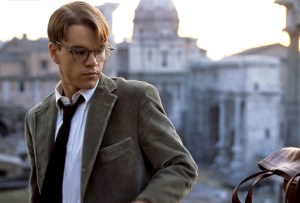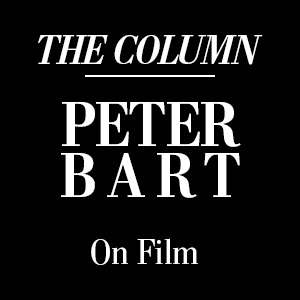I never liked Tom Ripley but I keep meeting him.
I’ve “met” Ripley in five films, and he’s now the protagonist of a somber eight-part Netflix series. So filmmakers clearly find his character intriguing. Even though he has no character.
That, in itself, reminds me that Hollywood is suffering the same problem as Washington: an absence of vital young protagonists. Voters are confronted by an election that’s really a rerun, likely opened by a debate no one wants to witness.
In filmmaking, the worldwide success of Oppenheimer told us that a complex story becomes more interesting if it’s also about someone interesting. Yet movies with vibrant young protagonists seem to be losing their moment.
Dan Lin, the new chief of film at Netflix, confides a desire — since rebutted by Ted Sarandos on Thursday’s Q1 earnings call — to steer away from mindless mega-budget action films like Red Notice with Chris Evans or The Gray Man with Ryan Gosling. Then there is Franklin, the new Apple TV+ series starring Michael Douglas that veers between geriatric comedy and history lesson.
The old Hollywood studios worked hard to create “important” roles for their big stars to pacify the stars and their fans. Hence Bogart got his Casablanca, Bette Davis her All About Eve, and Marlon Brando his On the Waterfront. The screens were also littered with abundant shlock along the way.
The post-studio “indie era” delivered unexpected protagonists like Billy Beane in Moneyball (Brad Pitt) or Stephen Hawking in The Theory of Everything (Eddie Redmayne) or John Nash in A Beautiful Mind (Russell Crowe).
Somewhere along the way, however, these surprising characters seemed to get lost. The “big roles” created for Joaquin Phoenix in Napoleon or Adam Driver in Ferrari didn’t produce either strong reviews or buoyant box office. The empathy and motivation of the protagonists seemed overwhelmed by scale.
Again, the principals of the riveting new film Civil War frustrate some critics because they are observers – nonpartisan recorders of the events – rather than passionate proponents for either side.
By contrast, the frailties of Tom Ripley in his various manifestations confound ticket buyers for different reasons. Created by Patricia Highsmith, the talented writer of British thrillers, Ripley has lured the talents of diverse actors like Alain Delon, Dennis Hopper, John Malkovich, Matt Damon and the present Andrew Scott.

Matt Damon in 1999’s ‘The Talented Mr. Ripley’
Who is Ripley? He’s a con man — almost well-connected, almost charming, almost dangerous and almost proficient. “Ripley is less character than cipher, an outline of a figure onto which filmmakers have projected their cultural moment,” observed Alissa Wilkinson in The New York Times.
The newest iteration, titled Ripley and now unfolding on Netflix, is artfully shot in black and white by Robert Elswit and represents the first directing effort of Steven Zaillian, whose writing credits include Schindler’s List and The Irishman.
While The Talented Mr Ripley, directed by Anthony Minghella, was glamorous and erotic by design, the latest Ripley is moody and slow–paced, more art movie than thriller, and lacking the sexy interplay of Damon, Jude Law and Gwyneth Paltrow.
Admirers of Ripley point to its artistic tension. Others fault its protagonist for an absence of motivation or energy.
In short, who is he?
Hollywood needs a new generation of vibrant young actors. And better roles for them.

